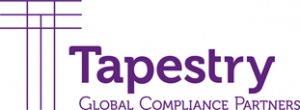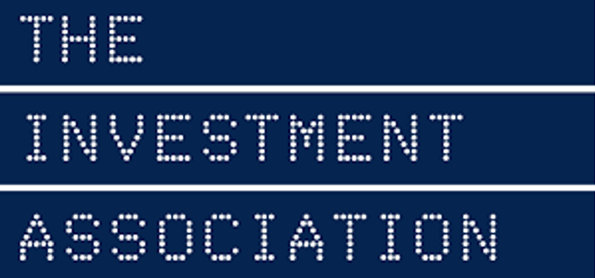
What is happening?
HMRC, the UK tax authority, has announced that it will be reviewing how it could simplify the mechanism for calculating the bonus rate applicable to a UK tax advantaged SAYE plan (sometimes called Sharesave, or Save as you Earn).
Remind me - what is the ‘bonus rate’?
Essentially, it’s interest.
Individuals who wish to participate in a UK SAYE must enter into a linked savings arrangement with an authorised savings carrier to save a specified amount per month. It is possible for the linked savings arrangement to provide that the participant will become entitled to a tax-free bonus - essentially this is interest which accrues on their savings, and is paid at maturity of the contract. The bonus is calculated based on a rate which is fixed at the start of the savings contract.
Why is this happening now?
The bonus rate is currently nil and has been set at this level for many years (since 2014). The bonus rate is set in accordance with an automatic mechanism, linked to market swap rates.
Whilst the announcement by HMRC does not specifically confirm that bonuses will become payable in future, in the current economic climate, this is something which seems more likely than in recent times. The timing of the review of the mechanism for calculating the bonus rate may not be coincidental.
What are HMRC actually reviewing – and when do we hear more?
HMRC are reviewing the mechanism for calculating the bonus rate. In HMRC’s ERS Bulletin 43, HMRC note that the current mechanism is “extremely complex”. The aim of the review will therefore be to simplify the method of calculating the applicable bonus rate.
In the meantime, HMRC have issued a new prospectus (the document which governs the terms of the savings contracts), which comes into effect for savings contracts entered into from 30 June onwards. The reference to the current bonus rate mechanism has been removed from this new savings prospectus.
HMRC have said they will provide an update (in a further bulletin) by the end of the summer. In the meantime, bonus rates are being held at nil.
If bonuses do become payable, what will this mean for UK SAYE?
The obvious implication is that, going forwards, participants will normally become entitled to receive interest on their savings, in the form of a tax-free bonus.
However, there is another potential benefit too. Where a bonus is payable, it can also be included in the amount of the savings the participant will make over the life of the savings arrangement. This amount is called the ‘expected repayment’. The ‘expected repayment’ is used to calculate the number of shares subject to the SAYE option. A bigger expected repayment therefore ultimately increases the number of shares subject to an SAYE option. This means a participant can buy more shares and maximise the value they are receiving from the SAYE plan.
Tapestry comment
A simplification of the bonus rate calculation mechanism is likely to be seen as good news. However, for SAYE participants, this may be tempered in the event that any change reduces the bonus rate which would otherwise have been due under the current mechanism.
There will be a number of things to think about in this context:
- Will HMRC apply the change to existing SAYE contracts, or only those entered after the change takes effect? Generally, a change will only apply to savings contracts entered into on or after the date on which it comes into effect. Any change in the mechanism for calculating the bonus rates will not of itself impact existing contracts in any case, as the rate has already been specified at nil. If there is an increase in the rate itself (calculated under the new mechanism), we anticipate this is likely only to apply to savings contracts which are entered into after a further new savings prospectus, which specifies the new rates, takes effect.
- Will a company need to amend its plan rules? A company would not normally need to amend its UK SAYE plan rules in relation to any change in bonus rate calculation, as this is not generally set out in the rules. Again, amendments are unlikely to be needed if bonuses start becoming payable, as rules are usually drafted flexibly to accommodate payment of bonuses, in line with the legislation. However, it will depend on exactly what has been included on certain points – so specific advice should be taken. A company may also need to update its pro-forma grant minutes (e.g. to allow bonus to be included in the ‘expected repayment’ to maximise the number of shares employees can buy). Given the early stages of this review, it’s probably too early for companies to make any updates just yet – but it is one to keep on the radar.
- Will the employee communications need updating? If bonuses become payable again, then almost certainly, yes. Given there has been no bonus payable for many years, plan communications such as brochures, FAQs and invitation documents/application forms are unlikely to cater for this adequately at the moment. As rates are being held at nil whilst HMRC undertakes its review of the calculation, companies and administrators may want to wait and see whether HMRC’s further update later in the summer gives any indication of when rates may rise above nil before putting pen to paper on this. However, in an economic context where a rate rise is perhaps anticipated, companies and administrators may want to plan ahead.
- What do companies need to do about their international SAYE arrangements? Whilst it does depend on how the plan rules are drafted, any change in UK SAYE bonus rates may not automatically apply to an international SAYE plan. A company which wants to track its UK SAYE plan will therefore need to check its plan rules and savings paperwork for the international arrangement, to see whether changes would need to be made. Legal advice would be needed – the position will be company specific.
Watch this space!
If you have any questions, please do contact us and we would be happy to help.
Suzannah Crookes and Emma Parker



 Hannah Needle, FGE is a Legal Director and on the Board of Directors at Tapestry. Hannah leads on Tapestry’s legal services, and is therefore instrumental in the delivery, development and quality of the firm’s legal advice, both in the UK and globally.
Hannah Needle, FGE is a Legal Director and on the Board of Directors at Tapestry. Hannah leads on Tapestry’s legal services, and is therefore instrumental in the delivery, development and quality of the firm’s legal advice, both in the UK and globally.

















